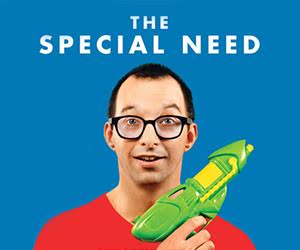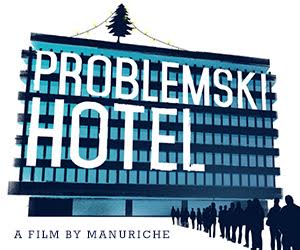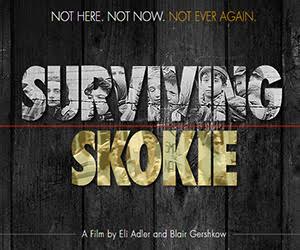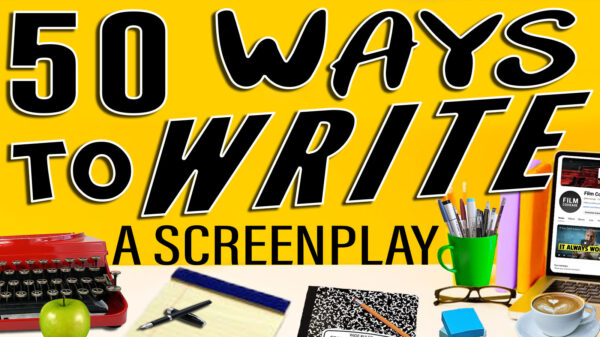
Watch the video on Youtube here
Film Courage: So switching gears a little bit, I was wondering if you can take us back to where you were in your life when you switched careers? You were a basketball player for awhile. I know you grew up in the music business with your dad but then you played basketball. And then there was a point where you switched careers? Can you talk about mentally where you were, physically where you were? How was that?
Harvey Mason, Jr.: Yeah, when I was playing basketball my dream was to play in the NBA and I had a career-ending injury which kind of made me change direction and focus or re-focus on music. And that was a tough time because I really planned on playing basketball and I worked my whole life to do that. But in the long run I think it was a really fortunate turn of events. To get hurt, you never think it’s a good thing, but it turned me toward music and it made me really, really take all my energy and effort that I was putting into basketball and put it toward music. That was right at the time I finished college. So I was young and I was still malleable enough to adjust and switch into something else. But music was always a passion of mine when I was a kid. I think I started taking piano lessons when I was 6 years old or 7 years old and it was a hobby all through college. I always kept my toe in the water with music. And then when basketball finished for me, it was just definitely kind of a wholesale refocusing. I started doing jingles locally in Arizona where I was going to college. I started doing commercial music and working for ad agencies. And I was doing music for anybody who wanted it. Brake stores, buses, things like that. I would make a jingle for anybody. And all the while I was trying to get to Los Angeles to kind of kick in somebody’s door to listen to my music. That took me probably three or four years driving out to LA for a week at a time, trying to get people to listen to my demos. I was sending cassettes to people back then, throwing cassettes into people’s convertibles, doing anything I could to get my music heard and that was kind of how I started here in LA was just driving out here. Sleeping in my car every now and then, whatever I had to do. And then one guy took notice. He said “Hey I love what you do. I’ll pay you (I think) $2,500.00 to do a job for me.” and at that point I was like “Oh my God! I’m in. I made it.” And that was my first job. Motown Records. I did a remix for one of their artists. And then I ended up here doing an interview with you.

Watch the video on Youtube here
Film Courage: What year was this?
Harvey Mason, Jr.: That was probably 1990….1994? Something like that.
Film Courage: You said earlier that you take a nugget of something from each project and that there is [always] some lesson in it. So looking back at the jingles…maybe creatively it wasn’t the most fulfilling, maybe it was? What did you take from this [time working on jingles] that you then used to build this amazing studio that you have here which is absolutely beautiful.
Harvey Mason, Jr.: I’ll tell you, I took so much from that two or three year period where I did advertising music because you have to do every range of music. If some guy says “Well I want it to be country western and my burger joint, I feel like it’s a country place or…blues music or I want this kind of a music or I want classical.” You have to be able to do all that type of music. You have to be able to deliver it quickly and you have to be able to do it economically when you’re working in a small market like that so it was an amazing training ground for me. The other thing that I got from that was working outside of your own bubble of creativity. Like you can’t do whatever you want. When this guy is trying to sell cars with his music. You have to do whatever he thinks is going to sell cars. So you really have to pay attention to what people want. You have to be able to translate what they’re thinking because a car salesman or a break store owner or a guy who runs a mall is not a musician. You have to figure out what he’s trying to get to with his music and figure out how to get it out of your fingers and out of the speakers ultimately. That is what I use everyday whether it is an A & R guy for a record label or a director for a film. Being able to take what they say and they think and what they feel and making that come to life with music is something that I do every day. So that is great training. And as I said, being able to do all the different kind of genres of music and being able to have access to my background being in all those types of music. I did so many rock n’ roll commercials, so many classical commercials that I can draw from when I’m needing to do a piece of music for a film.
Question for the Viewers: What was your first job in the entertainment business?
CONNECT WITH HARVEY MASON JR.
Harveymasonmedia.com
IMDB
Instagram.com/harveymasonjr
Twitter
Watch the trailer to SING here on Youtube
About Harvey Mason, Jr.:
For the past twenty years, Harvey Mason Jr. has not only penned and produced songs for both industry legends and today’s superstars including Aretha Franklin, Michael Jackson, Britney Spears, Justin Timberlake and Chris Brown, but he has been instrumental in producing music for many of the biggest musical films and television shows of the past decade. Everyone from Beyoncé and Jennifer Hudson in Dreamgirls, Whitney Houston in Sparkle, to the eclectic cast in Pitch Perfect, and Mary J. Blige and Neyo in The Wiz Live! have called on Harvey to deliver music of the highest standards for blockbuster musical productions.

Harvey was born in Boston, Massachusetts where his parents attended the prestigious Berklee College of Music. Harvey’s father, Harvey Mason, Sr., is a noted jazz drummer and founding member of the group, Fourplay. Mason Jr. grew up in Los Angeles where he tagged along to his father’s recording sessions with the likes of Quincy Jones, Carole King, The Brothers Johnson and Herbie Hancock. Harvey wrote his first song, “Love Makes It Better” for Grover Washington, Jr. at the age of eight. Besides being a gifted musician, Harvey was also a gifted athlete and attended the University of Arizona on a basketball scholarship and played in the 1988 Final Four with teammates Sean Elliott and Steve Kerr.
Harvey’s first success came when he wrote the song “Truthfully” for Brandy’s 1998 release Never Say Never. He then joined forces with Rodney Jerkins’, Darkchild Entertainment, and continued to write and produce hits for the likes of Jennifer Lopez, Destiny’s Child, Toni Braxton, Whitney Houston and Michael Jackson. In 2000, Mason Jr. formed the production company, The Underdogs, whose first hit was Tyrese’s “I Like Them Girls”. They continued to top the R&B charts with hits for B2K, Marques Houston, Ruben Studdard, Joe, Avant, and Omarion. Harvey topped the charts in 2009 with the number one hit, “No Air” with Jordin Sparks and Chris Brown and again in 2012 with Chris Brown’s “Turn Up The Music”.
In 2006, Harvey produced the soundtrack for the movie musical Dreamgirls. His work on Dreamgirls was the first to produce three Oscar-nominated songs from the same film in the same year. In 2008, Harvey Mason Media produced the major motion picture More Than A Game documenting the incredible journey of LeBron James’ high school basketball team. The movie garnered a second place People’s Choice Award at the prestigious Toronto Film Festival behind the film Slumdog Millionaire. Harvey also composed the score to the film and served as executive producer on the soundtrack Music Inspired By More Than A Game released on his label Mason Music through Interscope Records. In 2012, Harvey was nominated for a Golden Globe Award for the song “The Living Proof” with Mary J. Blige featured in the movie The Help. Sadly, he was the last producer to work with Whitney Houston when he produced the songs “His Eye On The Sparrow” and “Celebrate” for the movie Sparkle. Later in 2012, Harvey produced all of the a cappella vocal performances for the hit film Pitch Perfect featuring Rebel Wilson and Anna Kendrick. In 2014, he produced the music for Get On Up, the film about the life and music of the legendary James Brown. Harvey again joined with the cast of Pitch Perfect with the addition of Hailey Steinfeld to produce new a cappella hits for the movie’s 2015 sequel. In the summer of 2015, Harvey arranged and produced all the legendary NWA music for the theatrical release of Straight Outta Compton. Most recently, he wrote and produced music for the top rated NBC broadcast of The Wiz Live!. Currently, Harvey is in production on music for the animated film Sing from the creators of Despicable Me and Minions to be released later in 2016.
Harvey proudly serves on the National Board of Trustees for the Recording Academy and serves as co-chair of the Producers and Engineers Wing and the Advocacy Committee. He is also a member of the Board of Trustees for his Alma mater, the University of Arizona. Harvey donates his time and resources to several charitable organizations including GRAMMY in the Schools, MusicCares Foundation, Ronald McDonald House, the American Cancer Society, and Los Angeles Children’s Hospital. Harvey received the Spirit of Excellence Award in 2012 by the T.J. Martell Foundation for his philanthropic efforts.
Advertisement

Visit LeftOnPurpose.com here to watch the film and read more on Mayer Vishner
LEFT ON PURPOSE – Midway through the filming of a documentary about his life as an anti war activist, Mayer Vishner declares that his time has passed and that his last political act will be to commit suicide— and he wants it all on camera. Now the director must decide whether to turn off his camera or use it to keep his friend alive. Left on Purpose is an award winning feature length documentary that confronts the growing issues of aging, isolation and end of life choices through an intense character driven story of the relationship between filmmaker and subject. With humor and heart it provides a rare cinematic look at what it means to be a friend to someone in pain.

Watch The Special Need on Vimeo here
THE SPECIAL NEED: Enea is 29. He has blue eyes, likes trucks, and loves girls. He hasn’t found the right one yet. Still he has never stopped looking for her. One more thing about Enea: he is autistic. One day, after taking a photo of a girl on the bus, he is pushed to the ground by her boyfriend. Enea’s therapist convinces his mom that the time has come for the man to cope with his sexual desires. Enea’s friends Carlo and Alex get involved and try to find a way for Enea to have sex in a safe and legal environment.

Watch Problemski Hotel on Vimeo here
PROBLEMSKI HOTEL: For the inmates of the multinational residential center somewhere in Europe, the circular, black comedy that is the cross-frontier migrant’s life ‘within the system’ becomes even blacker in December. For we are in the European ‘season of gladness and joy.’ Bipul doesn’t want to admit it to himself, but the Russian girl’s arrival makes a difference: Lidia. Hope? Surely not! A future? Get real! December is also the ninth month of Martina’s pregnancy. Pregnancies don’t go round in circles; they end in eruptions. Because when the situation is hopeless, rescue is near.

Watch Surviving Skokie on Vimeo here
SURVIVING SKOKIE: They survived the horrors of the Holocaust and came to America to put the past behind. For decades they kept their awful memories secret, even from their children. But their silence ended when a band of neo-Nazi thugs threatened to march in their quiet village of Skokie, Illinois “because that is where the Jews are.”
Surviving Skokie is an intensely personal documentary by former Skokie resident Eli Adler about the provocative events of the 1970s, their aftermath, his family’s horrific experience of the Shoah, and a journey with his father to confront long-suppressed memories.
























